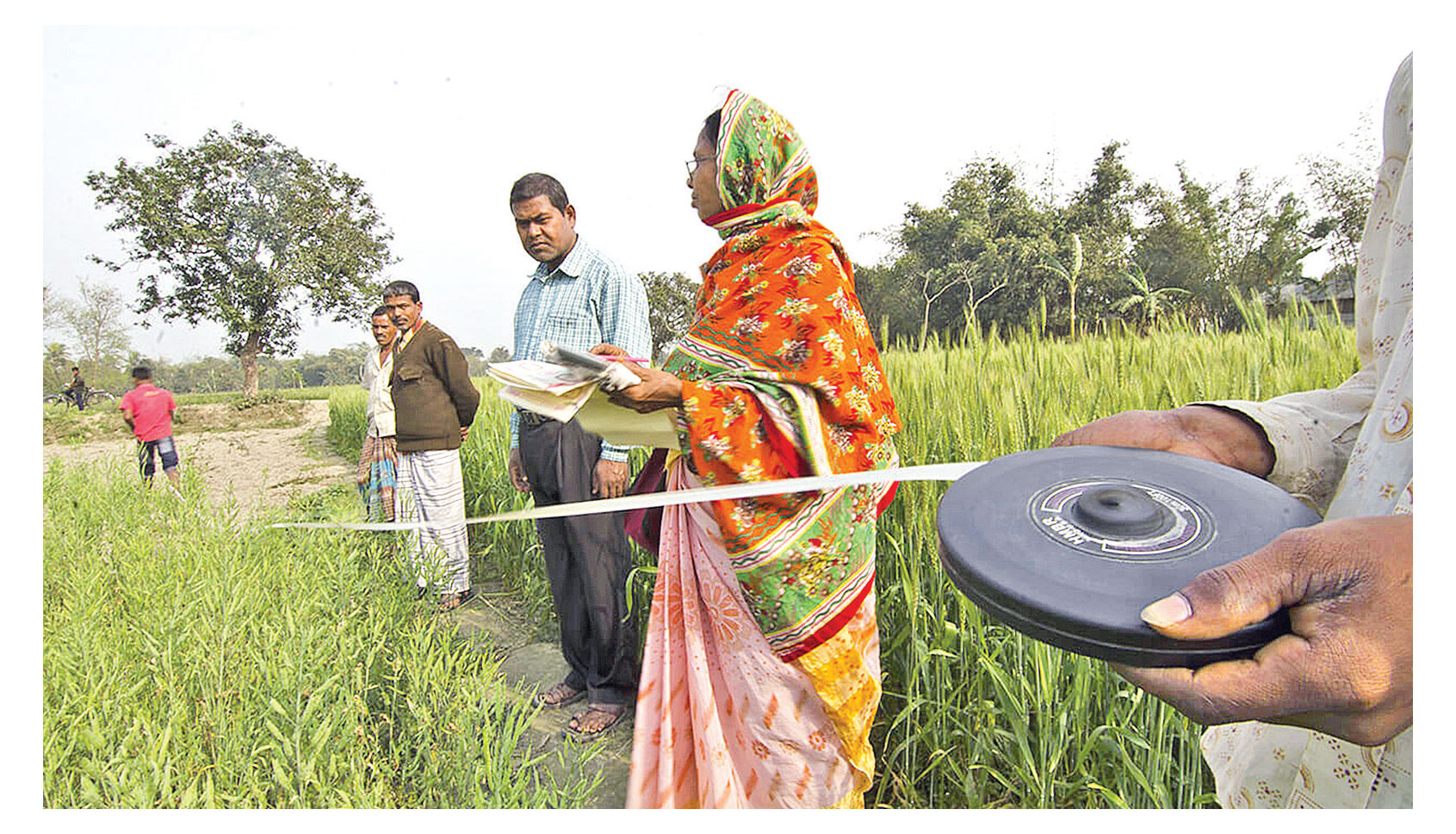Land Administration: Flaws and Remedies
Sakib Imam Refat, Student, Department of Law, Bangladesh University of Professionals (BUP)
Published: 16 Nov 2025

We find reports about land disputes in newspapers and on social media platforms every now and then. Many of these conflicts often lead to deaths, suicides and kidnapping. Unfortunately, the lack of proper implementation of land rights, poor land administration and lengthy legal processes have turned land disputes into one of the most common and violent forms of conflicts in the country. It is because the present land administration system has several flaws. It is now highly necessary to address them, resolve them through reforms and ensure proper land management.
Land serves as the foundation of livelihood, shelter and social security. And the right to land is recognised as a fundamental human right. The Constitution of Bangladesh guarantees this right, while the Universal Declaration of Human Rights (Articles 17 and 25) affirms that everyone has the right to own property and to an adequate standard of living, including housing and social security. In Bangladesh, land ownership may rest with individuals, cooperatives, or the state. The State Acquisition and Tenancy Act, 1950 (SAT Act), is the principal law governing agricultural land. The SAT Act establishes a uniform class of landholders known as maliks, whose rights and liabilities are defined under the Act, though they possess no claim to subsoil or mineral rights. Alongside this, various other statutes—including the Land Survey Act, the Land Reforms Ordinance, and the Land Management Manual—collectively form the legal framework ensuring security and regulation of land rights in Bangladesh.

Land disputes arise from conflicting interests over lands. These disputes may originate from the land itself, related instruments, or interests arising out of it. Studies reveal that around 80% of civil and criminal cases in Bangladesh stem from land disputes. The lack of coordination among land management agencies, time-consuming administrative processes, conventional methods of land surveys and record maintenance, and distorted land records further perpetuate these land disputes.
Then, the land administration in Bangladesh involves creating, transferring and extinguishing land rights, encompassing revenue, survey, and certificate administration. The administrative framework operates through Union Land Offices up to Divisional Commissioners, with core functions—record keeping, registration, and settlement—managed by the Ministry of Land and the Ministry of Law, Justice and Parliamentary Affairs.
But at present, there is no uniform system of settling land disputes in Bangladesh. In fact, the Revenue Officer, the Civil Court, the Magistrate Court, the Village Court or the Municipal Board may settle land disputes. There have been many efforts in the recent few years to ensure conventional development of land rights, but there have also been debates about how gender determines one’s rights in the family and society as well in many respects. The existing systems, laws, administration, etc., regarding land are not suitable for us to enjoy exclusive rights over immovable property. Despite numerous initiatives for the systematic development of land rights, progress remains slow and inadequate. Moreover, the erosion of communal land rights has become a cultural concern, further intensifying inequality and disputes.
To ensure equitable land rights and reduce conflicts, the government should introduce comprehensive legislation such as a Land Rights Act and a Land Dispute Settlement Act to protect citizens’ land interests. Reforming inheritance laws to establish universal family and inheritance laws is essential for promoting gender equality. The Land Tribunal’s authority and efficiency should be enhanced to expedite dispute resolution. Introducing Alternative Dispute Resolution (ADR) mechanisms can also help settle land conflicts outside the courts. Furthermore, digitising and modernising land records will promote transparency and minimise corruption. The mutation process should be simplified, and skilled, well-trained personnel should be appointed at local land offices to ensure effective administration. Lastly, legal aid and literacy programmes must be provided for underprivileged individuals to empower them in protecting their land rights.
In conclusion, achieving fair and efficient land management in Bangladesh requires legislative reform, administrative modernisation, technological advancement, and public awareness. These combined efforts will strengthen land governance, reduce disputes, and ensure justice and equality in land ownership across the nation.

